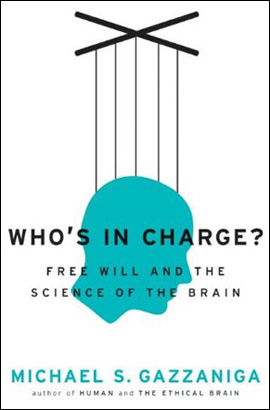Who’s in Charge?: Free Will and the Science of the Brain
Wednesday, April 11, 2012, 6:30 - 8:30pm
A Talk With Author and Scientist Michael Gazzaniga
The 14th Annual Jack & Lewis Rudin / Charles E. Schaffner Distinguished Lecture
Free and open to the public
Michael S. Gazzaniga makes a powerful and provocative argument to counter the common wisdom that our lives are wholly determined by physical processes that we cannot control on Wednesday, April 11 at 6:30 PM at The Cooper Union-The Great Hall. In his book, Who’s in Charge?: Free Will and the Science of the Brain, he offers a well-reasoned case against the idea that we live in a “determined” world. Gazzaniga convincingly argues that even given the latest insights into the physical mechanisms of the mind, there is an undeniable human reality: We are responsible agents who should be held accountable for our actions, because responsibility is found in how people interact, not in brains.
Gazzaniga will be introduced by Cooper Union President Jamshed Bharcuha.
The Jack & Lewis Rudin Charles E. Schaffner distinguished lecture series was established by Jack and Lewis Rudin, two of New York’s illustrious business and civic leaders, in honor of Cooper Union alumnus Charles E. Schaffner, a civil engineering graduate of 1941. Topics that the speakers address explore the larger interdisciplinary impact of technology and science both nationally and internationally.
Michael Gazzaniga is one of the leading researchers in cognitive neuroscience. He is a professor of psychology at the University of California, Santa Barbara where he heads the new SAGE Center for the Study of the Mind. He is a member of the American Academy of Arts and sciences, the Institute of Medicine, and the National Academy of Sciences.

Located in The Great Hall, in the Foundation Building, 7 East 7th Street, between Third and Fourth Avenues




